15 Transformational Photos Of Street Cats Before And After They Were Rescued And Adopted
Hello to all cat lovers around the world! If you're new here, this segment is all about proving that love has power and that love can put an end to the cruelty that animals face today.
Animal cruelty is something that we will never understand. We simply cannot comprehend how people can be so evil and cruel.
Fortunately, the world is made up of compassionate individuals who balance out the coldhearted. They are indeed the ones who adopt, shelter, and provide assistance to needy animals.
We respect these individuals because we believe we can all learn from them. We can all be a little nicer, kinder, and more understanding.
We fully grasp that adopting a shelter cat is not easy, but it does not have to be the end of the story. You can assist them by feeding them, providing expert help through a vet, and/or volunteering at shelters.
Getting or rescuing a cat from a shelter is a very responsible and kind thing to do. The pictures of these felines after adoption give us hope for their future, and we feel confident they will do so for you.
Admirable cat adoptive parents from all over the globe are posting pictures of their rescued family felines before and after they were rescued to emphasize the importance of a good home for rescue cats. Scroll down to see the difference in these cats’ lives after they were rescued and adopted.
1. "Calvin before and after adoption"

2. "Adoptable Wyatt before & after rescue. Story in captions. S FL"
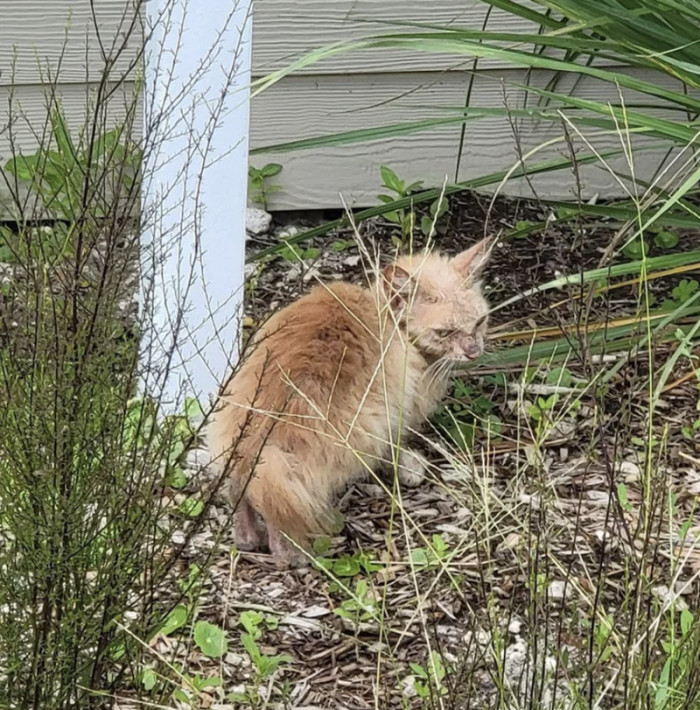
3. Look at Wyatt now

The transformation of street cats into beloved companions offers profound insights into the psychological principles of attachment and resilience. According to research published in the American Psychological Association, the bond formed between pets and their owners can significantly enhance emotional well-being. These relationships often provide unconditional support, which is instrumental for individuals coping with stress or loneliness. Studies show that caring for an animal can foster a sense of purpose and improve mood, illustrating the reciprocal nature of love and care.
In particular, the act of rescuing animals provides a unique opportunity for individuals to cultivate empathy. This aligns with the Social Learning Theory, which posits that empathy can be developed through observation and interaction. The more individuals engage with animals, the more they can learn to understand feelings beyond their own, which is crucial for emotional intelligence.
4. "My little Noya before & after… I adopted her about 5 days ago from an animal shelter that was almost over capacity. She's been in a really shy adjustment period, and I truly can't wait until she gets more comfortable. She's been skittish, but I've been able to pet her a bit, along with some purring."

5. Hello Noya!

6. "This is Bonnie. We found her alone, stuck in a barn with no food or water. She was already 7 weeks old!"
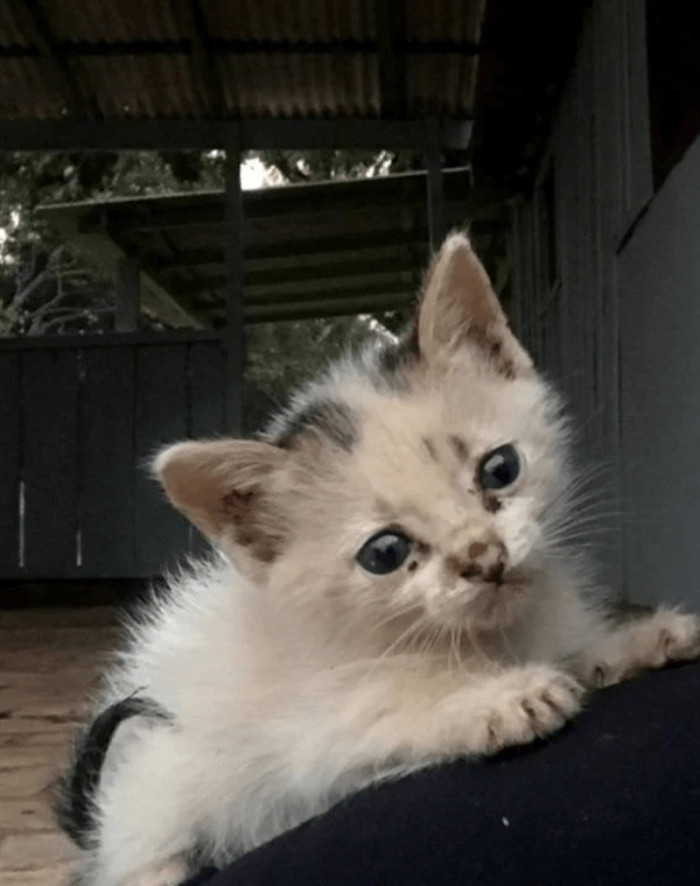
The Role of Compassion in Human Behavior
Compassion plays a critical role in motivating individuals to rescue animals, and it's informed by several psychological theories. Dr. Kristin Neff, a pioneer in the field of self-compassion, notes that fostering compassion towards others can also enhance one’s own emotional health. Compassion training has been shown to reduce anxiety and depression while promoting resilience (Neff & Germer, 2018). When individuals extend kindness to animals, they often experience a sense of fulfillment and emotional reward, which can create a positive feedback loop.
Moreover, research indicates that engaging in altruistic behaviors, such as adopting or rescuing animals, can lead to what psychologists refer to as 'helper's high'—a state of euphoria that arises from helping others (Cameron & Spreitzer, 2012). This feeling can enhance self-esteem and foster a greater sense of community, encouraging even more compassionate behaviors.
7. Look at Bonnie now

8. "Brussel sprouts adoption photo vs. a year later in all his floof (peep the 6 toes!)"
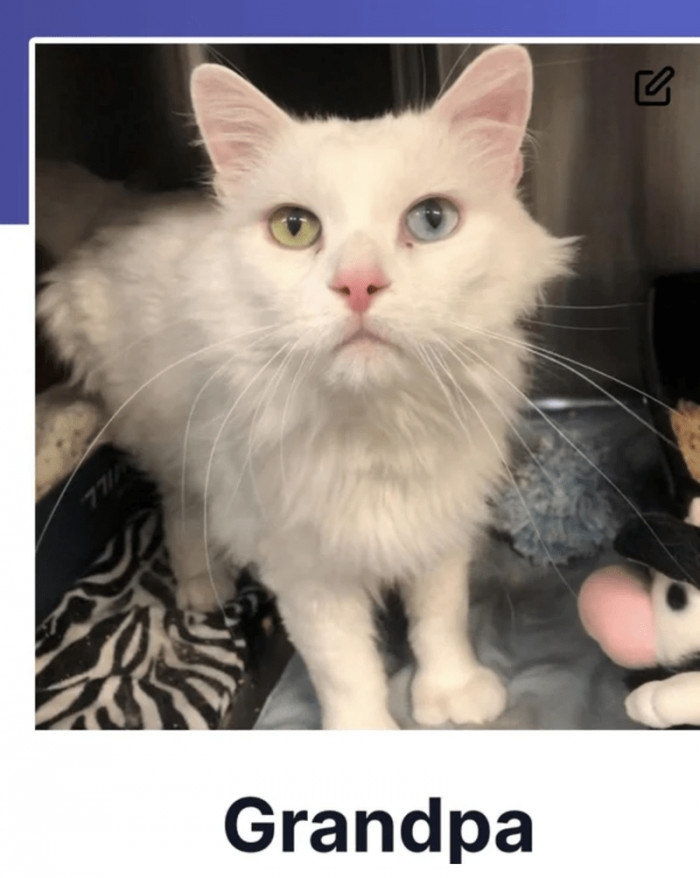
9. Looking all so adorable

Understanding the psychological impact of animal rescue extends into the domain of trauma healing. For many, the act of adopting a pet can mirror their own journey of recovery from trauma or hardship. According to research from the National Institutes of Health, pets can provide emotional support that significantly aids in the healing process for trauma survivors, fostering a sense of safety and stability. This relationship can offer a non-judgmental space for individuals to express their feelings, which is vital for emotional recovery.
Moreover, the presence of animals can stimulate the release of oxytocin, often called the 'love hormone,' which plays a key role in bonding and emotional regulation. This biochemical response helps to alleviate symptoms of anxiety and depression, making the act of caring for a pet both a therapeutic and healing experience.
10. "This is Erebus! My mom (911 dispatcher) called me during work to tell me a trooper found this small baby underneath his car. I spent my lunch break picking him up, taking him home, and feeding him soft food. He's grown so much in the last 9 months!"
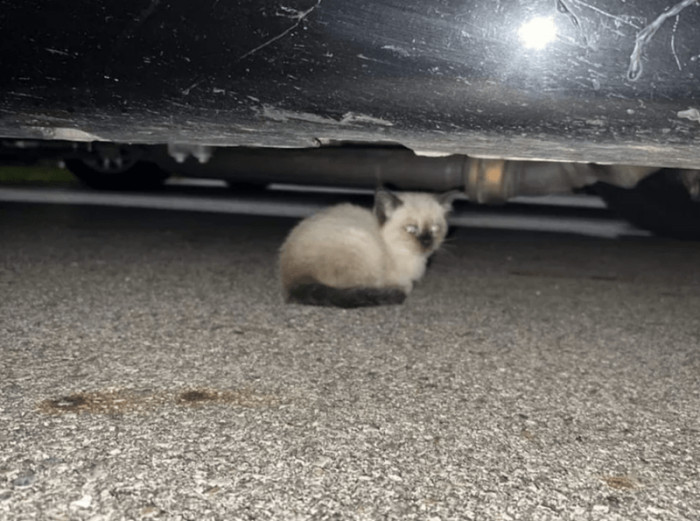
11. The big Erebus

12. "Always together"
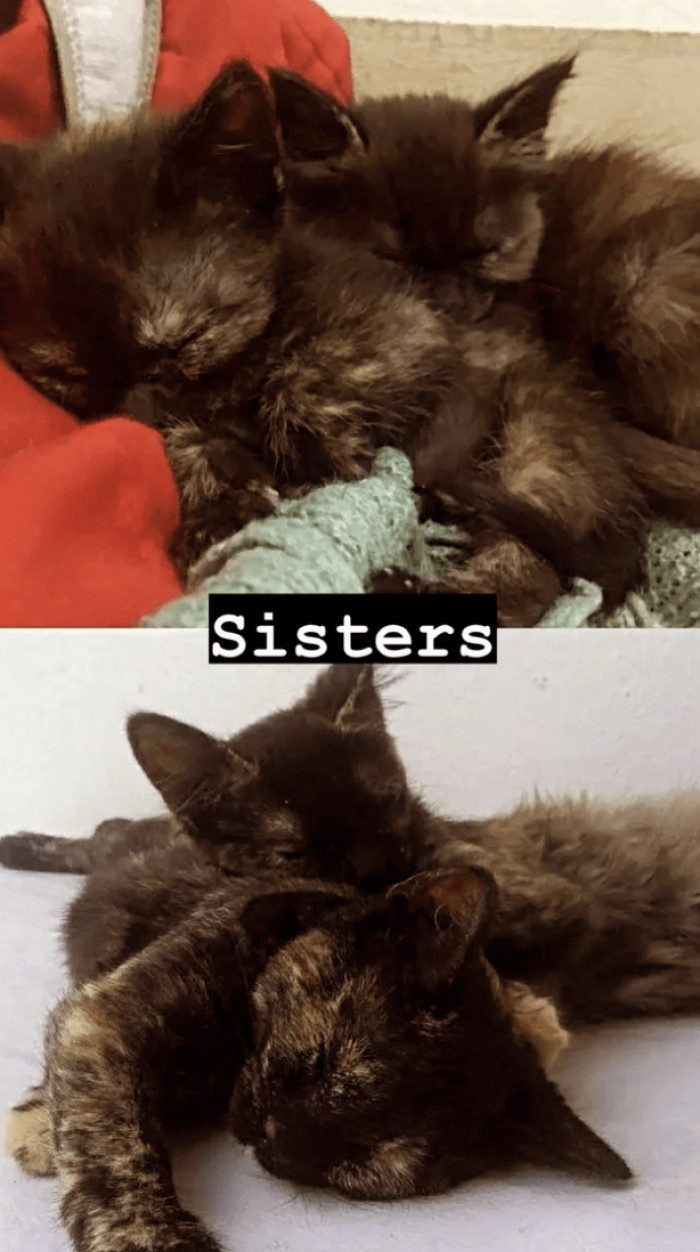
Building Emotional Resilience Through Pet Ownership
Adopting a rescue cat not only benefits the animal but can also significantly impact the adopter's emotional resilience. Research indicates that pet ownership promotes coping skills and emotional support during challenging times. A study conducted by the American Psychological Association found that pet owners often report lower levels of stress and greater life satisfaction compared to non-pet owners. This is particularly true when individuals actively engage in nurturing relationships with their pets.
Practical recommendations for enhancing emotional resilience through pet ownership include structured routines that involve caring for the animal, such as feeding and playtime. These activities not only provide a sense of responsibility but also establish a rhythm that can help individuals manage their own emotional states more effectively.
13. "My Johnny cat gets more adorable every day... Is there an adorableness limit?"

14. Another glimpse at Johnny

15. "He was such an angry-looking void when we adopted him"
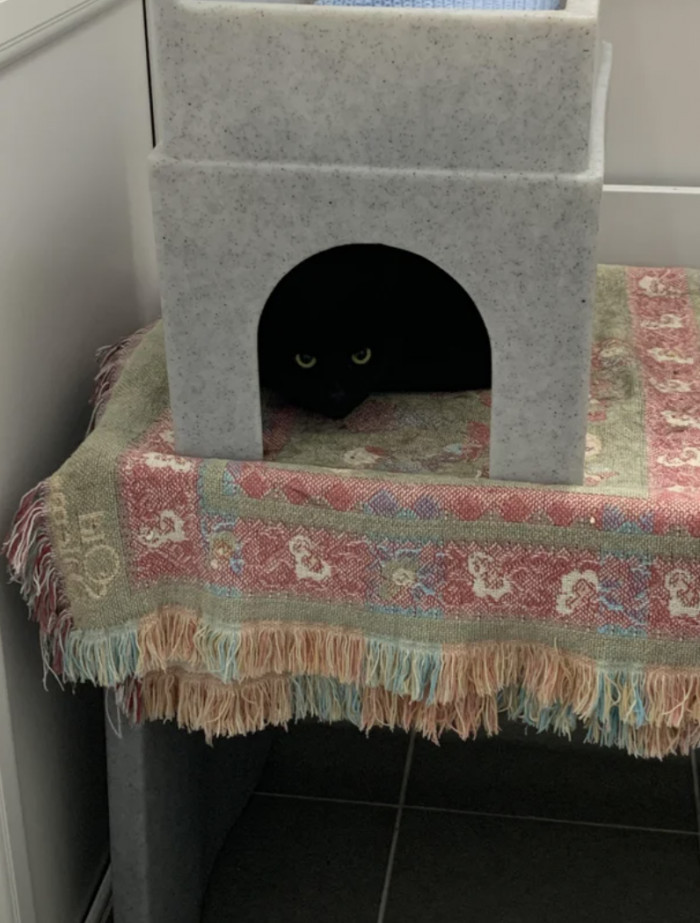
The connection between humans and animals is embedded in our evolutionary history, highlighting the psychological benefits of companionship. Dr. John Archer, a prominent researcher in animal behavior, notes that the bond between humans and pets has evolved to provide emotional support and companionship throughout history. This bond facilitates the development of social skills and emotional regulation, which are essential for navigating complex human relationships.
Additionally, studies have shown that interactions with pets can stimulate areas of the brain associated with positive emotions, reinforcing the psychological benefits of companionship (Barker, 2019). These insights underscore the importance of fostering connections with animals, particularly in a world where social isolation is increasingly common.
16. But take a look at him now

17. "LOOK HOW HANDSOME HE IS NOW"

18. Remarkable
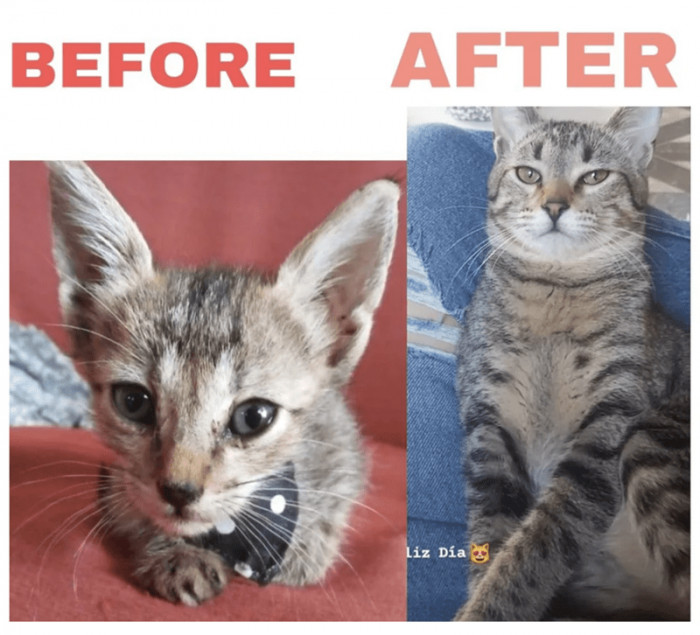
Transforming Lives: The Power of Adoption
The act of adopting a rescue cat serves as a powerful metaphor for transformation, resonating deeply with psychological principles of change and renewal. A study from the University of Michigan highlights how transformative experiences often lead to personal growth, allowing individuals to redefine their identities and values (Delle Fave et al., 2011). When people choose to adopt, they embark on a journey that reflects their commitment to change—not just for the animal but for themselves as well.
Moreover, researchers emphasize the importance of self-efficacy in these transformative processes. When individuals successfully care for and nurture an animal, they reinforce their belief in their abilities to effect positive change, which can lead to greater confidence in other areas of life. This underscores the idea that small acts of kindness can significantly enhance one's sense of agency and purpose.
19. Look who just turned 6 years old

20. "We came across this little guy on Christmas Eve near my mother-in-law's house almost 4 years ago.
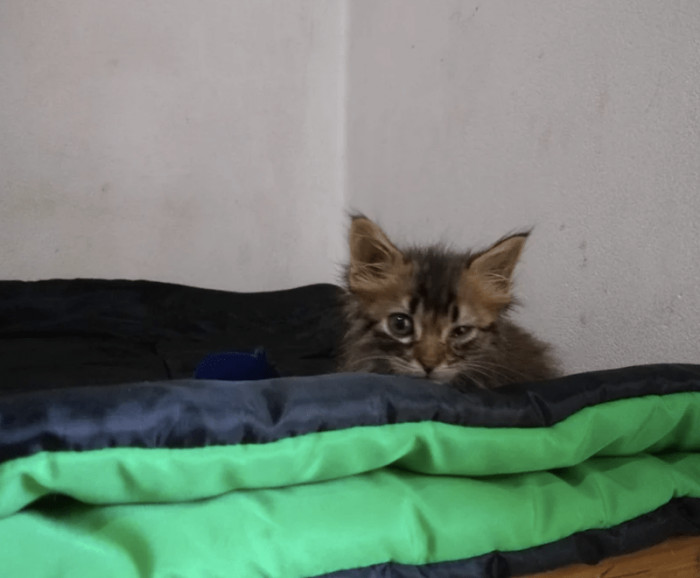
21. "Marceline when she was first seized from a hoarder house, a picture the shelter took a couple of months later when she was ready for adoption, and a few days ago!"
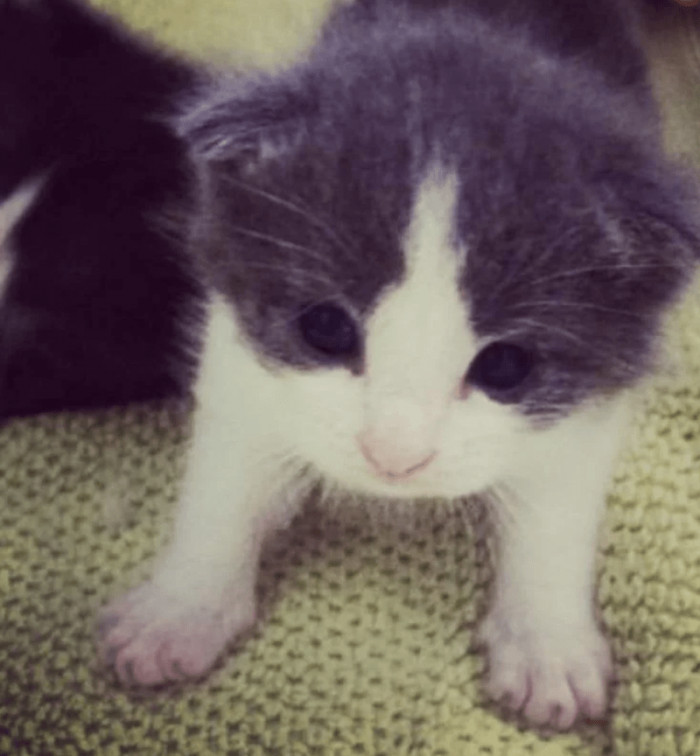
The stories of rescued street cats often illustrate the profound impact of unconditional love on both animals and their caregivers. According to research in clinical psychology, unconditional love can significantly enhance psychological resilience and emotional well-being. The bond that develops between a pet and its owner can serve as a powerful catalyst for healing, especially for individuals dealing with loneliness or emotional distress.
Furthermore, the concept of 'interpersonal neurobiology' suggests that these loving interactions can actually reshape brain pathways, leading to improved emotional regulation and social skills (Siegel, 2012). This reinforces the idea that engaging with animals can create nurturing environments that promote emotional health, not only for the pets involved but also for the humans who care for them.
22. "RIP to the best cat I ever owned. This is Jumper, and he passed away last March."
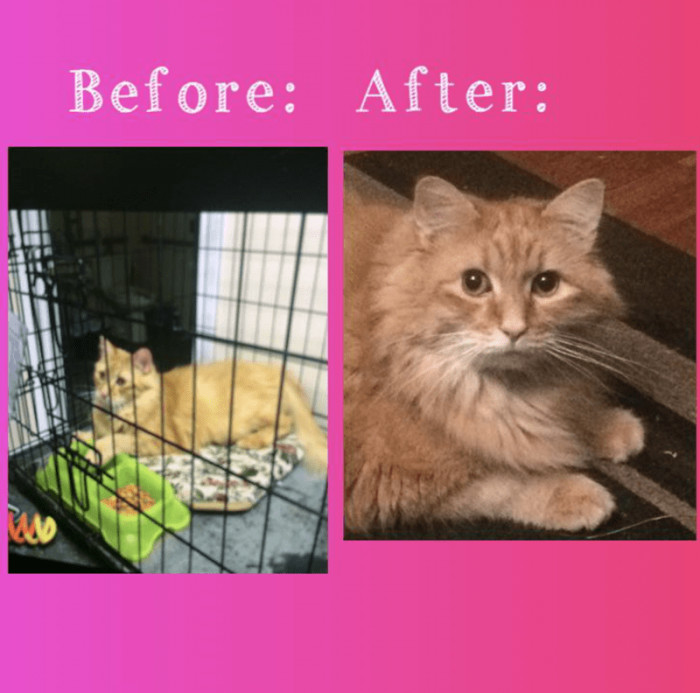
23. "Gotcha day June 14th // just yesterday! Baby Kahlua is literally perfect for us"
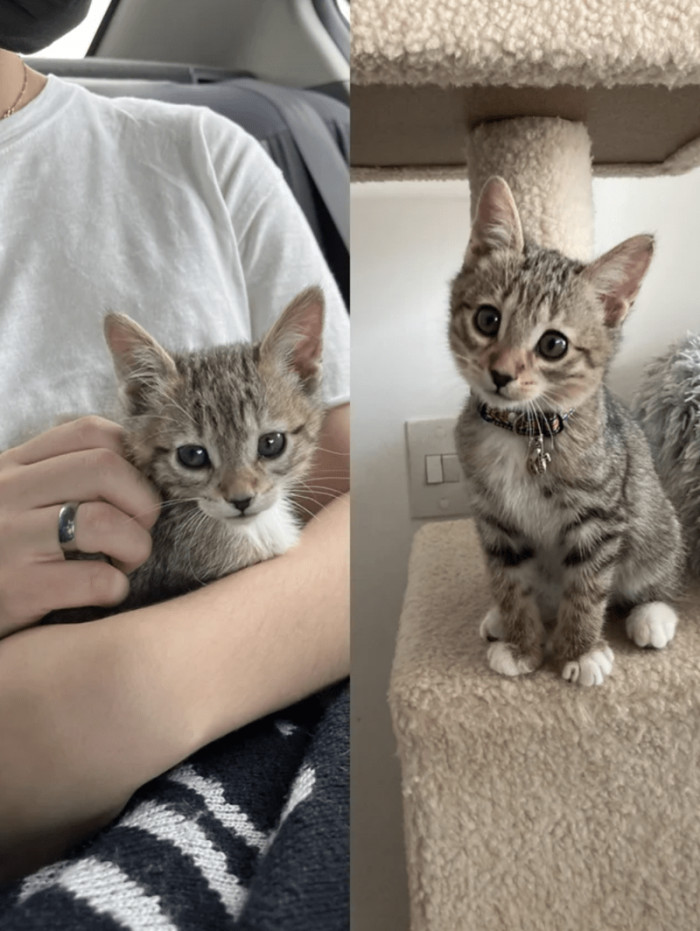
24. "Reeves was found after he was attacked by a bobcat. I called the vet when I was on my way in. I didn't think he would make it to the vet. Two vets told me to put him down, but one was willing to try! After vet stays and physical therapy, he recovered and was adopted!"
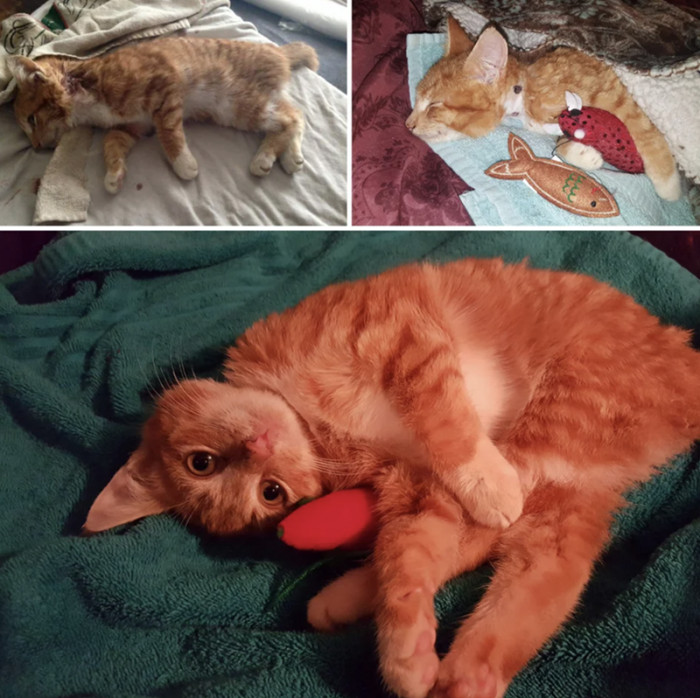
Creating a Kind Environment for Change
To foster a culture of kindness towards animals, it's crucial to engage in community initiatives that promote animal welfare. Research indicates that community involvement can enhance feelings of connectedness and social responsibility, both of which are essential for creating a supportive environment (Putnam, 2000). Individuals can participate in local shelters or advocacy groups, which not only benefits the animals but also cultivates a sense of belonging and purpose among volunteers.
Moreover, educational programs that teach empathy and responsibility towards animals can significantly influence children's attitudes and behaviors. Studies have shown that children who engage in animal-related activities tend to develop higher levels of empathy and social skills, forming a foundation for compassionate behavior in adulthood. Encouraging families to adopt pets together can also strengthen family bonds, fostering a shared sense of responsibility and commitment.
Consider how stray animals react when the person they thought was their life abandons them at a shelter or on the side of the road. Nothing is more heartbreaking than neglect, and these cats are well aware of it.
These cats found solace in the homes of their new rescuers, and they couldn't hide their emotions, ranging from angry expressions in overcrowded cells to wide-eyed smiles on comfortable mattresses.
Psychological Analysis
The transformations of rescued street cats beautifully illustrate the powerful psychological concept of attachment. When people adopt these animals, they not only provide a loving home but also fulfill their own emotional needs, often experiencing a boost in empathy and emotional resilience in the process. This reciprocal relationship can be incredibly healing, as both the cats and their new owners embark on a journey of recovery and growth together.
Analysis generated by AI
Psychological Framework & Solutions
The journey of transforming a street cat from a life of neglect to a loving home is a powerful reminder of the impact of compassion and love. Research from the National Institute of Mental Health emphasizes that such compassionate acts not only benefit the animals but also enhance the emotional well-being of their caregivers. The key takeaway is that providing care and love can foster resilience, empathy, and emotional growth, creating a ripple effect that benefits both humans and animals alike.
Ultimately, these transformations highlight the importance of nurturing relationships, whether with pets or within our communities, as a pathway to healing and personal growth. By fostering kindness and understanding, we can combat cruelty and make meaningful changes in the lives of both animals and ourselves.



